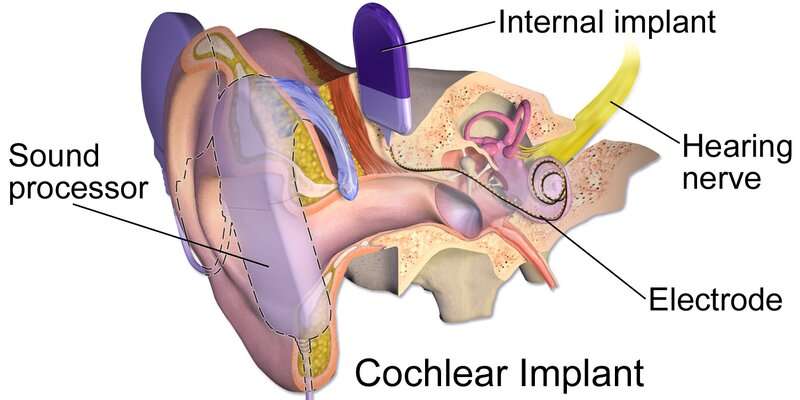
The cochlear implant (CI) is the most successful neural prosthesis worldwide. Thanks to direct stimulation of the auditory nerve, it enables more than half a million people worldwide to hear, even though those affected were born deaf or deafened. In close collaboration, researchers from the Faculty of Medicine and the Faculty of Engineering at the University of Freiburg have developed a method to convert the stimulation electrodes of common CIs into electrochemical sensors. With the help of this novel sensor function, the functionality of cochlear implants could be monitored directly in the inner ear in the long term. The researchers published their results on December 9, 2021 in the journal Biosensors and Bioelectronics.
“For the first time, specific sensor protocols allow the classic stimulation electrodes of the cochlear implant to be used as highly sensitive and accurate microsensors,” explains Dr. Andreas Weltin, group leader at the Department of Microsystems Engineering (IMTEK) at the University of Freiburg. “This sensor function is the basis for smarter implants that could monitor the implant’s condition and its environment directly in the inner ear.”
Source: Read Full Article
